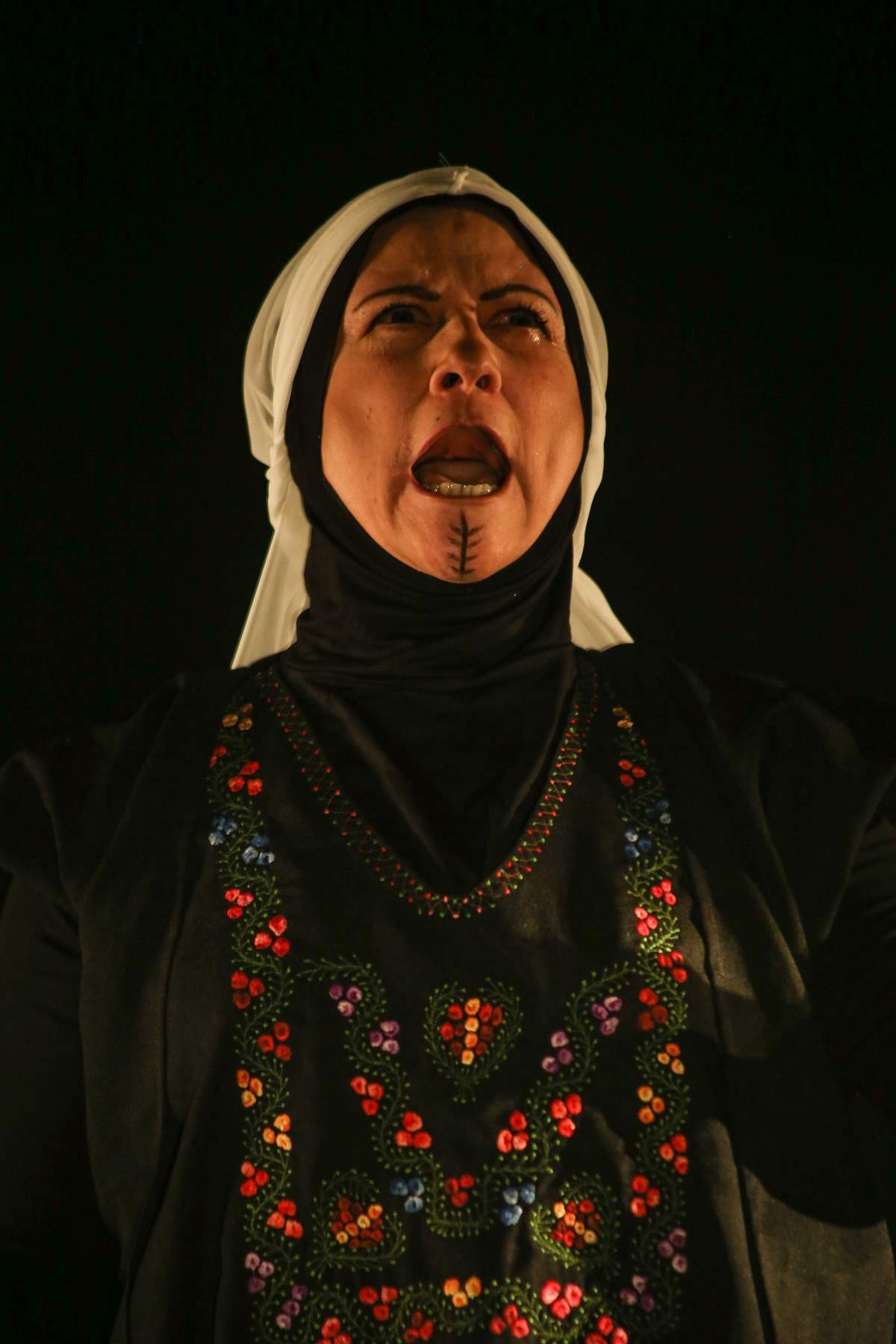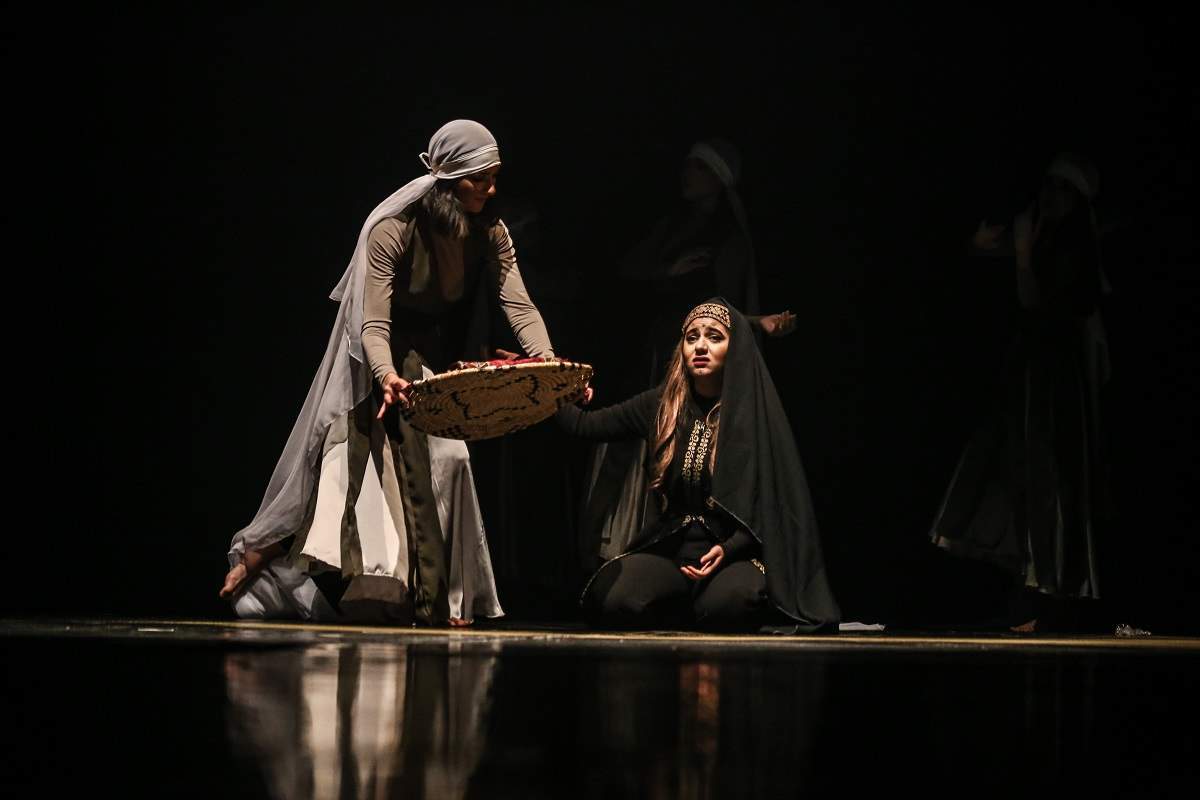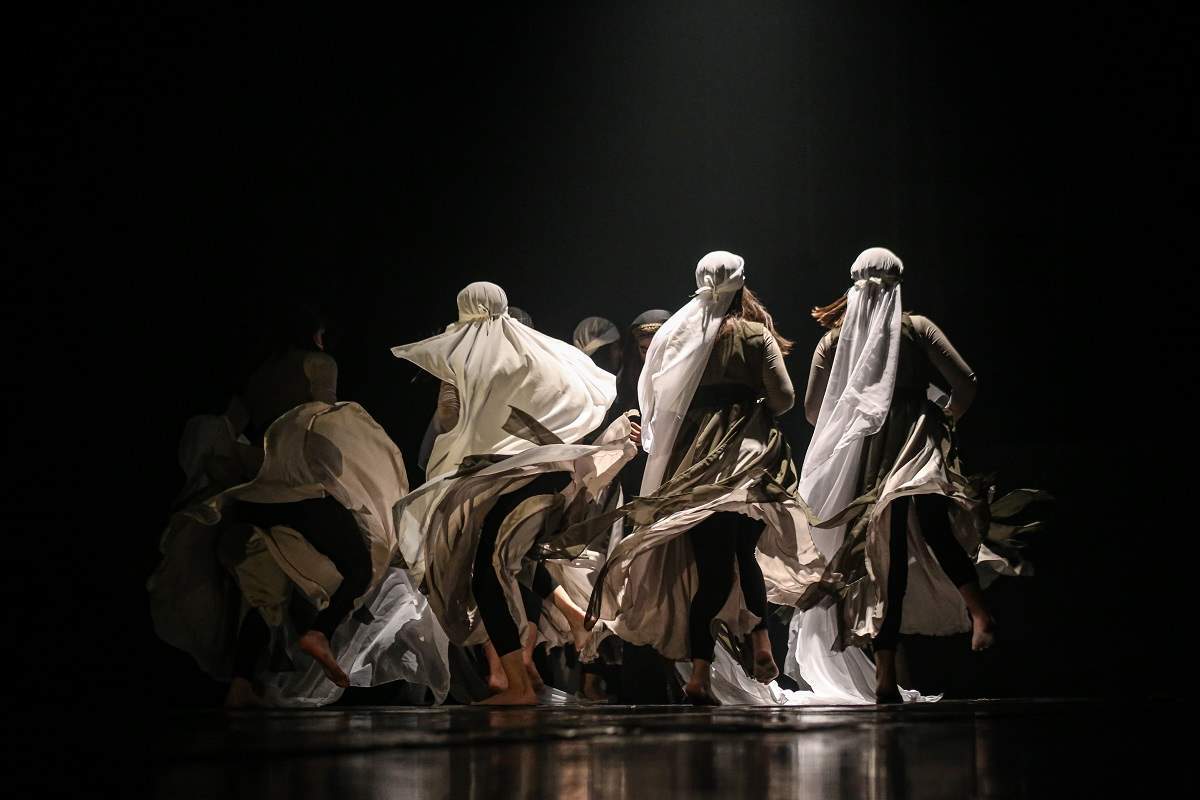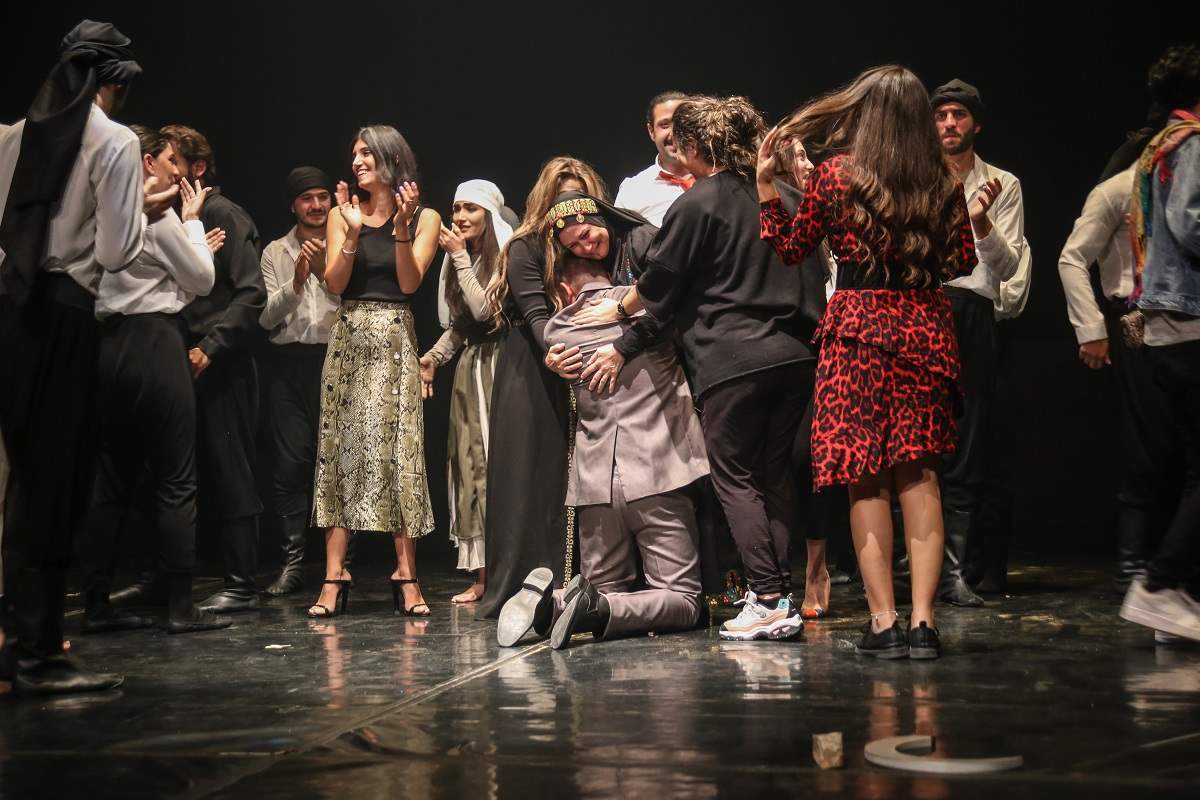AMMAN — It seemed like just another day, as I headed
out to The Royal Cultural Center to watch Omar Dmoor’s latest play, “Medraga”.
For those unfamiliar with this place, it is where great talents who have put
their hearts on stage come to perform. I can only hope my words do justice for
what my eyes experienced on the night of October 27.
اضافة اعلان
Twenty-four-year-old Omar Dmoor strives to create a
strong space for art, especially for the theatre. A graduate of the University
of Jordan, with a degree in theater and arts, Dmoor grew up in an artistic
family, where he learned the love of art from his actress mother and director
father.
 (Photo: Majo Tielve/Jordan News)
(Photo: Majo Tielve/Jordan News)
The name “Medraga” is derived from the name for the traditional,
embroidered female abaya worn in Karak. The story is set during the revolt or
“Al Hayye” of the people of Karak against Ottoman authorities in 1910, when the
people rose up against Ottoman conscription, taxation and disarmament measures.
The revolt was brutally suppressed by Sami Pasha, governor of Damascus at the
time. His brutal repression greatly angered the Karakis and contributed to
their support of the Great Arab Revolt in 1916.
The story continues on from there to show how the
men of Karak were taken to fight for their people. Some lost their lives, their
loved ones, they were fighting against the British invasion, they were fighting
against the occupation, some just went off to fight and never came home.
From acting to directing, theater it is where Dmoor
belongs, where he feels free. His life is based on art, and theatre is where he
finds what is inside his heart: "Theatre is life, and the people who are
with you in the same room sharing the energy we make and receive is unique,'' Dmoor
said.
 (Photo: Majo Tielve/Jordan News)
(Photo: Majo Tielve/Jordan News)
For the young director, the most challenging part
when doing a new play is finding the right team. He said that theatre is more
like a family, people are together daily for months, so they become family. “I
usually start by including people very close (to me) in the project, and then I
like to find new talents, make way for new people,” Dmoor said.
There was a specific moment when art changed his
life forever. Dmoor remembers it well, that moment he saw his parents
performing on stage, it was especially about the spark he saw in their eyes.
"I wanted to feel that too, and I only found that spark in the theatre
when I was directing the play Turoq,” he said. The play was his graduation
project.
“Theatre in Jordan is not so common or as well
supported, for you to make a living as an artist, you have to work on yourself,”
Dmoor said.
The cast of “Medraga” tells a story that may have been
forgotten by the passage of time, but it can still make us feel deeply. The
play is based on the novel "Wadi Al Sefsafeh", written by Ahmad
Altarawneh.
 (Photo: Majo Tielve/Jordan News)
(Photo: Majo Tielve/Jordan News)
Palestinian actress Rania Fahed was unforgettably
amazing in the role of Zaina, the mother. She embodied the suffering felt from losing
loved ones, showing us the tragedy that only comes with war, and all the
emotions that make us who we are today.
The play is a love story between Faris, played by
actor Mohamad Al Jizawi, and his wife, Henna, played by actress Doaa Edwan.
During their wedding night, the Ottomans take Faris away, and all the sadness
and anger comes to the fore. The power of this story comes from the woman who rejects
war and fights for what matters in life. The power of “Medraga” flooded over
the audience, there were tears, bodies breaking, souls suffering loss. We felt
it in our bones sitting in those red theatre chairs.
From the costumes, created by Reema Shatat, to Sara
Yaghmourian’s choreography, that sent those sumptuous fabrics dancing in the
air, the play was a beautiful, artful celebration of the traditions of Jordan.
Seven amazing women, and five amazing men stamped their energy on the boards of
this stage, among them Lour Madanat, Batool Jobrael, Adam Barghouthi, and
Mahmoud Abu Rozz. The play celebrated the fight, the hope, and the freedom
 (Photo: Majo Tielve/Jordan News)
(Photo: Majo Tielve/Jordan News)
Medraga was not only an enriching experience but
also a way to tell us the history of the Kingdom of Jordan. It teaches us about
humanity, and how despite all these years of occupation, occupation remains.
But there is something bigger than all that, there is still hope and there
always will be.
We learn to connect with the past and the emotions
it bring out in us, in the process we learn to be human, as vulnerable and as
alive as the tears we saw that night, the night “Medraga” not only taught us
history but also made history come to life.
Read more Trending news




